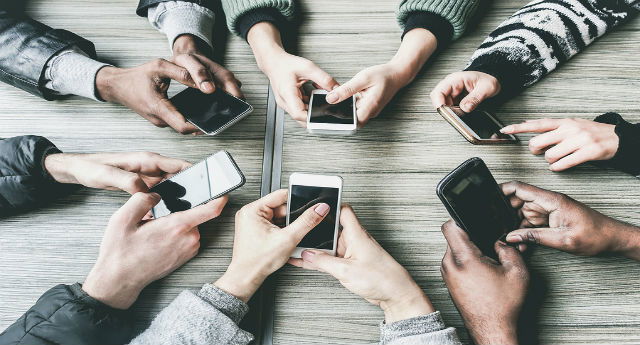
Why Parents are Saying ‘No’ to Smart Phones for Teens
By Movieguide® Contributor
More parents are saying no to smartphones for their teens, the Free Press reports.
“Jhett Rogers is the only holdout in his 30-strong group of friends without an iPhone. He says kids in the hallways now bump into each other, with everyone staring down at their phones,” according to the Free Press.
“At lunch hour, he says, everyone eats alone, scrolling TikTok while they chew. Every time one of his classmates gets a smartphone, Jhett Rogers thinks to himself: There goes another one. ‘It kind of feels like I’ve lost a friend. Whenever I’m with them, they’re zoned out and always on their phone,’” The Free Press continued.
Jhett even commented on the desire that he still wants to join the smart phone club.
“It kind of made me feel left out and jealous,” Jhett said. “But later I don’t want one because I know what happens.”
The Free Press added, “At 13, Jhett is part of a small, but growing, minority group of holdouts. By age 12, seven out of ten American kids own a smartphone. They also spend about eight hours online a day, inhaling TikTok trends, toggling between texts, and turning their daily lives into Snapchat and Instagram content. But a growing body of research shows that smartphones are at least partly to blame for skyrocketing rates of teenage anxiety and depression, and parents, like Jhett’s are waking up to the risk of having the entire internet at their teenager’s fingertips.”
One organization even reported that most children who received a smartphone have seen pornography by the age of 12. In addition, three out of four teenage boys watch adult content at least once a week.
Movieguide® recently reported on the effects social media has on young teens:
US Surgeon General, Vivek Murthy, has said that he believes 13 is too young for children to join social media platforms.
“I, personally, based on the data I’ve seen, believe that 13 is too early, it’s a time where it’s really important for us to be thoughtful about what’s going into how they think about their own self-worth and their relationships and the skewed and often distorted environment of social media often does a disservice to many of those children,” Murthy said.
Many large social media platforms such as Meta and Twitter currently allow users to join their platforms at the age of 13. With little regulation when it comes to age, these companies have no real incentive not to allow younger kids to join, especially when their competitors are.
Murthy had sympathy for parents, acknowledging that limiting social media use is not a simple task. He suggested parents may have to unite to protect their children from social media.
“If parents can band together and say you know, as a group, we’re not going to allow our kids to use social media until 16 or 17 or 18 or whatever age they choose, that’s a much more effective strategy in making sure your kids don’t get exposed to harm early,” Murthy said.



 - Content:
- Content: 
 - Content:
- Content: 
